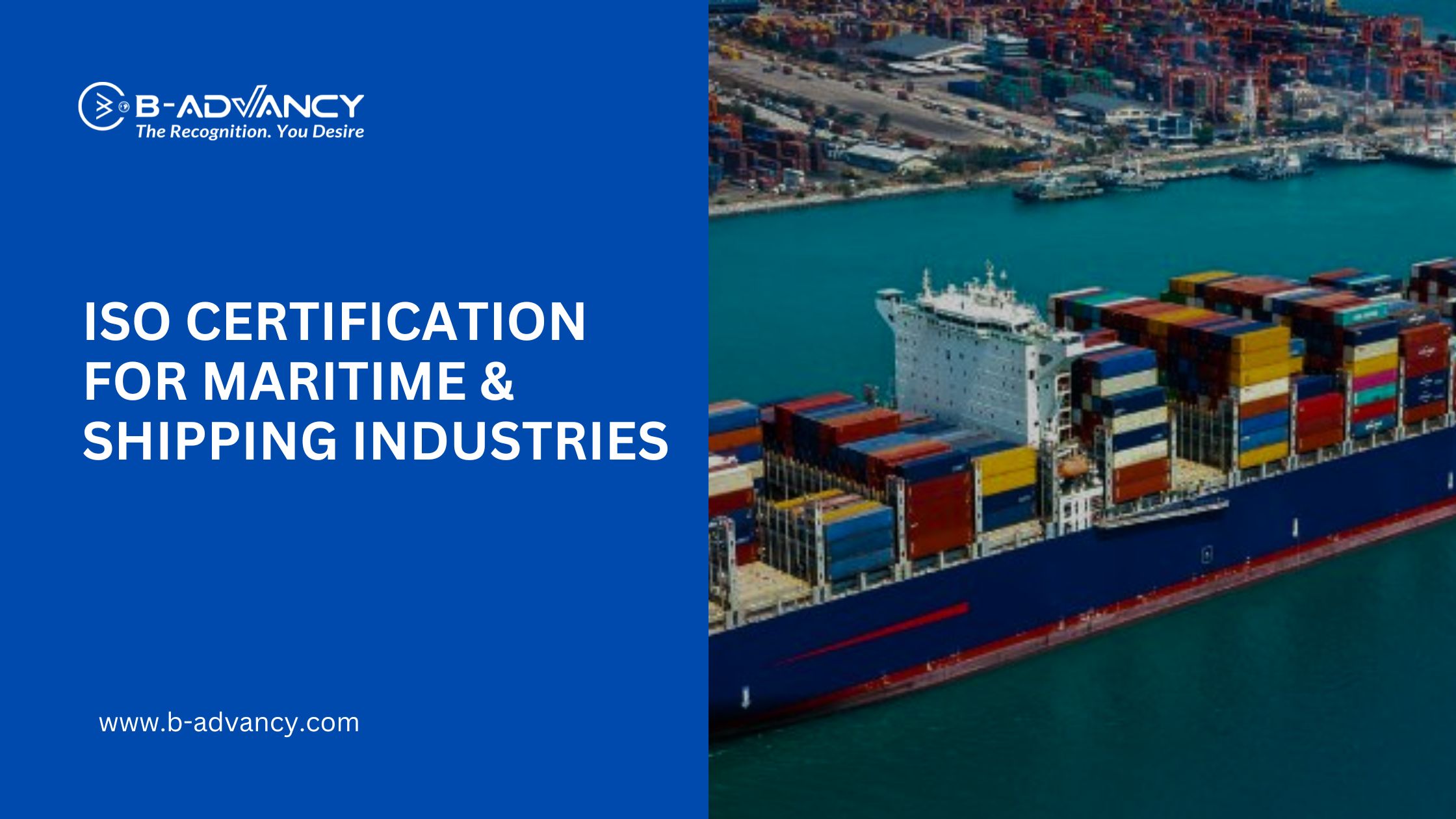
The maritime and shipping industries are the backbone of global trade, responsible for transporting over 80% of international goods. As the demand for efficient, safe, and sustainable shipping grows, organizations must meet strict regulatory, environmental, and operational requirements. ISO certification provides shipping companies, ports, and logistics operators with internationally recognized frameworks to improve safety, efficiency, and sustainability while maintaining compliance with global standards.
Shipping involves complex operations—ranging from cargo handling to vessel management and supply chain logistics. Companies face challenges such as environmental pollution, safety risks, international regulations, and customer expectations. ISO standards help maritime businesses:
Ensure safety and security at sea and onshore
Reduce environmental pollution and carbon footprint
Improve logistics and supply chain efficiency
Enhance crew health and workplace safety
Build trust with global clients and regulators
Ensures consistent quality in cargo handling, fleet operations, and customer service, reducing delays and errors in shipping operations.
Supports compliance with environmental regulations by helping firms reduce emissions, manage waste, and adopt sustainable shipping practices.
Protects seafarers and port staff by improving workplace safety and reducing risks of accidents and occupational hazards.
Secures sensitive digital data such as shipping documents, cargo manifests, and vessel tracking systems against cyber threats.
Helps optimize fuel consumption, improve energy efficiency, and reduce operational costs in shipping fleets and ports.
Ensures smooth operations during disruptions such as port shutdowns, natural disasters, or cyberattacks, safeguarding global supply chains.
Regulatory Compliance: Aligns with international maritime laws, including IMO (International Maritime Organization) regulations.
Operational Efficiency: Improves cargo handling, fleet maintenance, and logistics management.
Environmental Sustainability: Reduces pollution, emissions, and waste in line with global climate goals.
Enhanced Safety: Protects seafarers, dockworkers, and logistics staff with better risk management.
Global Recognition: ISO-certified shipping companies gain credibility and competitiveness in the international market.
In a sector as vital as maritime and shipping, ISO certification is not optional—it’s essential. From improving safety and efficiency to ensuring environmental responsibility, ISO standards empower companies to operate sustainably and competitively in the global trade ecosystem. By adopting ISO frameworks, shipping companies and ports can meet international expectations, protect marine environments, and secure their place in the future of global commerce.